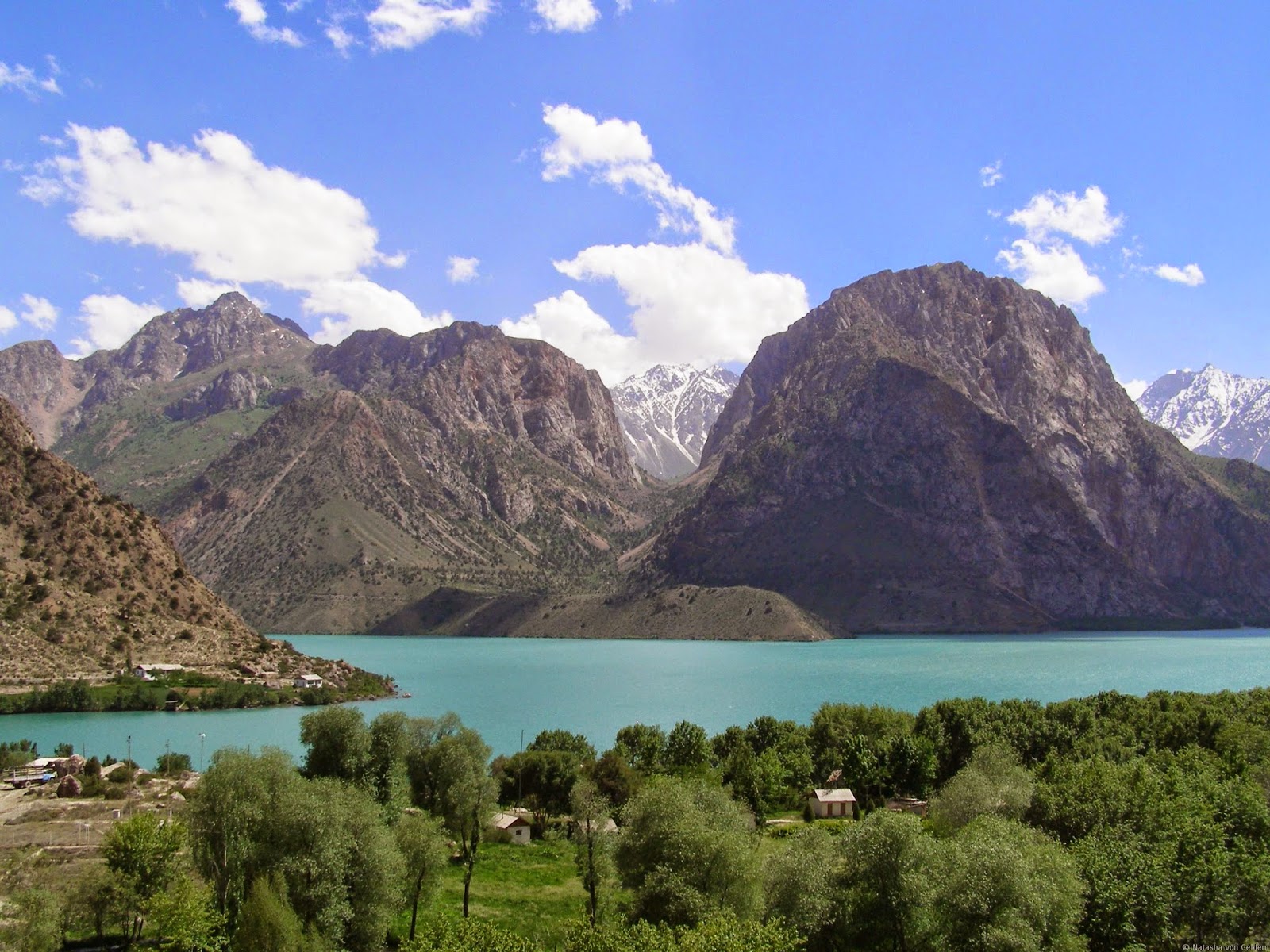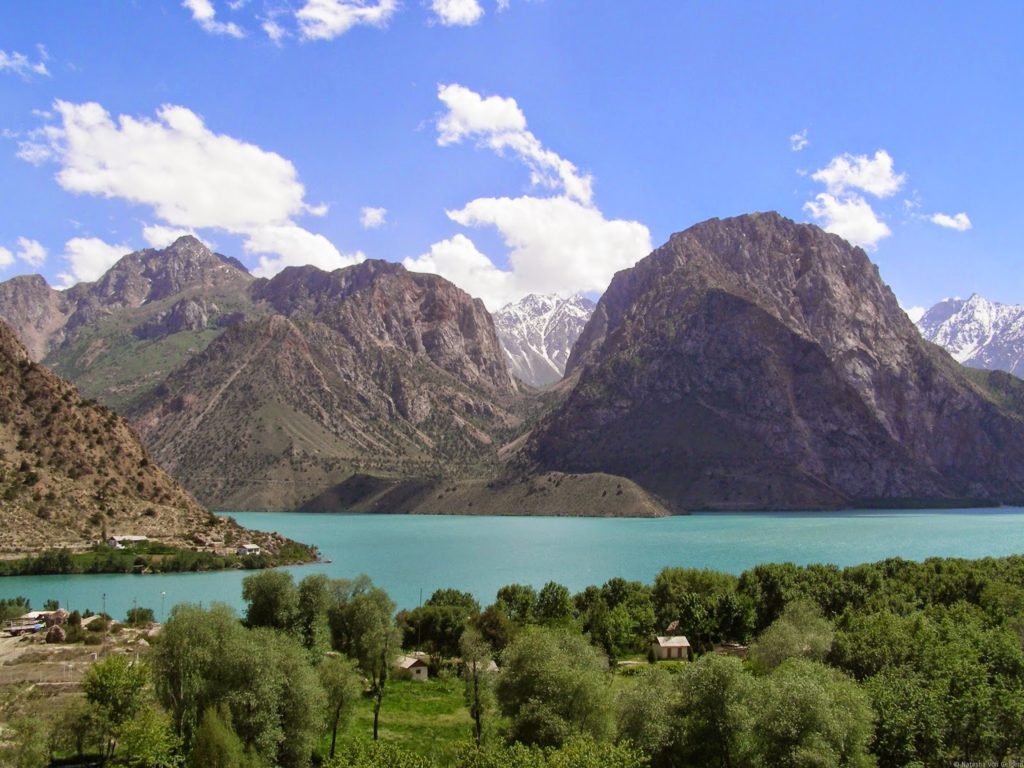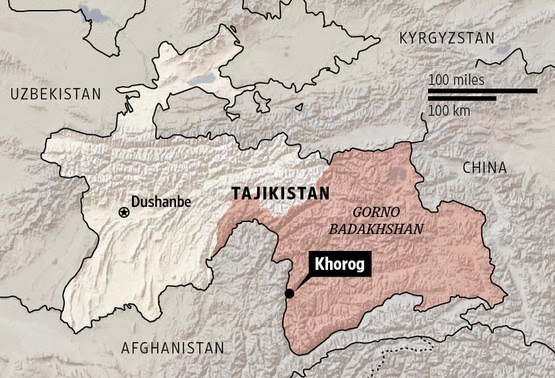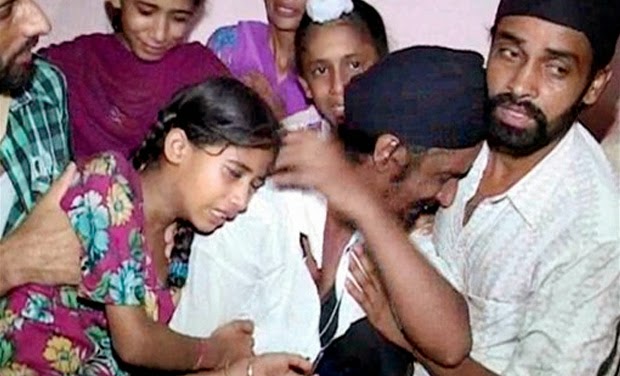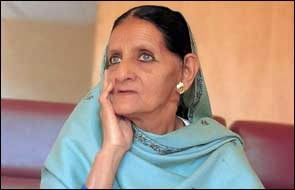The next Nobel
Peace Prize … should go to the thinker or leader who develops a model of
constitutional theocracy giving Muslim countries a coherent way of
recognizing yet limiting the authority of religious law and making it
compatible with good governance.
The way we interpret the article, Mark Lilla (sort of) regrets the fact that communism (which had all the good theories but bad practices) has been replaced by islamism (bad theory as well as bad practice). He is also clear that the goals of American foreign policy (more democracy everywhere) and European foreign policy (neo-liberalism everywhere) are badly flawed as applied to majority of non-democratic nations.
According to Lilla, Middle East North Africa will only be liberated when a giant (muslim) thinker/leader comes forward with a set of (divinely inspired but realistically best-fit) rules that will work for the diverse societies that call themselves muslim (he admits that such a great man is not yet amongst us). Till then he advises the world to be patient (and presumably watchful).
Not a bad advice at all (especially if it cuts down on the war-making). However it is important to admit upfront that such an attitude/policy spells doom for the non-muslim minorities (as well as many muslim ones). If Lilla advocates generous asylum considerations for such people he should say so. If anti-immigrant sentiment in the West prevents such accommodation then the West and Westerners should abandon the holy high ground and quit the holier-than-thou talk. No one is impressed by the tall hat and short cattle initiatives – it may well be that foreign aid does more harm than good – least of all the bloody monsters that are thick on the ground.
A couple of points that are not addressed in the article:
(1) This strategy of (not so) benign neglect on behalf of the West ignores the ongoing and pernicious influence of (to a smaller extent) Iran and (the primary villain) Saudi Arabia. The question is how to stop the petro-dollars from causing so much strife, especially since the West relies on the Saudis to sell oil and buy armaments.
Here we should recognize that Carlotta Gall was wrong, the right country to fight is neither Afghanistan nor Pakistan but S.A. (the real/spiritual home of the 9/11 perps).
(2) What happens to muslims in non-muslim countries who get radicalized by all the killings and sufferings of innocent muslims (that we are supposed to silently tolerate from a distance)? If the war comes to the West (and non-West countries as well) how do we handle that?
……
But in the mind of America’s political and journalistic classes, only two political categories exist today: democracy and le déluge.
If you assume that democracy is the only legitimate form of government,
that is a perfectly serviceable distinction. “What should not be,
cannot be,” wrote the German poet. Unable or just unwilling to
distinguish the varieties of non-democracy that exist today, we instead
speak of their “human rights records,” which tell us much less than we
think they do.
….
We turn to organizations such as Freedom House, a think
tank that promotes democracy and publicizes human rights abuses around
the world. It produces an influential annual report, Freedom in the World,
which claims to quantify levels of freedom in every country on Earth.
It gives them marks on different factors (rights to political
participation, civil liberties, the press, etc.) and then combines those
figures into a composite index number that indicates whether that
country is “free,” “partly free,” or “not free.”
…
The document reads like
a stock report: “this marks the seventh consecutive year in which
countries with declines outnumbered those with improvements.” In 2013,
readers were confidently told that, based on the numbers, the “most
noteworthy gains” in freedom in 2012 had been in Egypt, Libya, Burma,
and Côte d’Ivoire. One hardly knows where to begin.
…
Clearly,
the big surprise in world politics since the cold war’s end is not the
advance of liberal democracy but the reappearance of classic forms of
non-democratic political rule in modern guises. ….
The break-up of the
Soviet empire and the “shock therapy” that followed it produced new
oligarchies and kleptocracies that have at their disposal innovative
tools of finance and communication; the advance of political Islam has
placed millions of Muslims, who make up a quarter of the world’s
population, under more restrictive theocratic rule; tribes, clans, and
sectarian groups have become the most important actors in the
post-colonial states of Africa and the Middle East; China has brought
back despotic mercantilism.
….
Each of these political formations has a
distinctive nature that needs to be understood in its own terms, not as a
lesser or greater form of democracy in potentia. The world of nations remains what it has always been: an aviary.
….
But
ornithology is complicated and democracy-promotion seems so much
simpler. After all, don’t all peoples want to be well governed and
consulted in matters affecting them? Don’t they want to be secure and
treated justly? Don’t they want to escape the humiliations of poverty?
Well, liberal democracy is the best way of achieving these things.
…
That
is the American view—and, true enough, it is
shared by many people living in non-democratic countries. But that does
not mean they understand the implications of democratization and would
accept the social and cultural individualism it would inevitably bring
with it.
…
No peoples are as libertarian as Americans have become today;
they prize goods that individualism destroys, like deference to
tradition, a commitment to place, respect for elders, obligations to
family and clan, a devotion to piety and virtue. If they and we think
that they can have it all, then they and we are very much mistaken.
These are the rocks on which the hopes for Arab democracy keep
shattering.
….
The truth is that billions of people will not be living in
liberal democracies in our lifetimes or those of our children or
grandchildren—if ever. This is due not only to
culture and mores: to these must be added ethnic divisions, religious
sectarianism, illiteracy, economic injustice, senseless national borders
imposed by colonial powers … the list is long.
….
Without the rule of
law and a respected constitution, without professional bureaucracies
that treat citizens impartially, without the subordination of the
military to civilian rule, without regulatory bodies to keep economic
transactions transparent, without social norms that encourage civic
engagement and law-abidingness—without all of
this, modern liberal democracy is impossible.
…
So the only sensible
question to ask when thinking about today’s non-democracies is: what’s
Plan B?
….
Nothing reflects the bankruptcy of today’s
political thinking more than our unwillingness to pose this question,
which smacks of racism to the left and defeatism to the right (and both
to liberal hawks). But if the only choices we can imagine are democracy
or le déluge, we exclude the possibility of improving
non-democratic regimes without either trying forcibly to transform them
(American-style) or hoping vainly (European-style) that human rights
treaties, humanitarian interventions, legal sanctions, NGO projects, and
bloggers with iPhones will make a lasting difference. These are the
utterly characteristic delusions of our two continents.
…..
The next Nobel
Peace Prize should not go to a human rights activist or an NGO founder.
It should go to the thinker or leader who develops a model of
constitutional theocracy giving Muslim countries a coherent way of
recognizing yet limiting the authority of religious law and making it
compatible with good governance. This would be a historic, though not
necessarily democratic, achievement.
…..
No such prize will
be given, of course, and not only because such thinkers and leaders are
lacking. To recognize such an achievement would require abandoning the
dogma that individual freedom is the only or even the highest political
good in every historical circumstance, and accepting that trade-offs are
inevitable. It would mean accepting that, if there is a road from
serfdom to democracy, it will, in long stretches, be paved with
non-democracy—as it was in the West.
….
I am
beginning to feel some sympathy for those American officials who led the
occupation of Afghanistan and Iraq ten years ago and immediately began
destroying existing political parties, standing armies, and traditional
institutions of political consultation and authority. The deepest reason
for this colossal blunder was not American hubris or naïveté, though
there was plenty of that. It was that they had no way of thinking about
alternatives to immediate—and in the end, sham—democratization.
Where should they have turned? Whose books should they have read? What
model should they have relied on? All they knew was the prime directive:
draft new constitutions, establish parliaments and presidential
offices, then call elections. And after that, it was the deluge indeed.
…..
Link: http://www.newrepublic.com/article/118043/our-libertarian-age-dogma-democracy-dogma-decline
…..
regards
